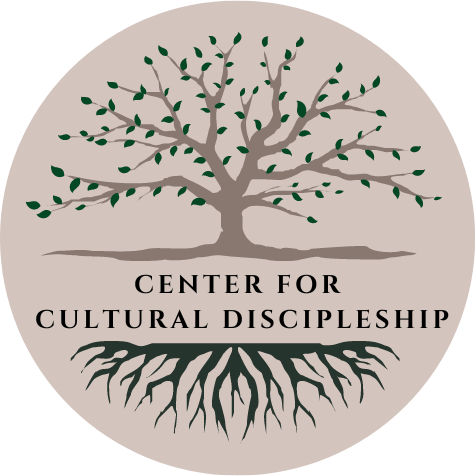“How did you get so wise?” The question was being asked by Kelly, a friend and co-worker. We often lunched together and genuinely enjoyed each other’s company. We had different friend groups outside of work and if our office had not placed us in adjoining cubicles, we may not have met and discovered a great friendship. Kelly was a self-professed agnostic living with her atheist boyfriend. I was a single, devoted, Christi-follower, and active in my church.
Let’s be clear. I’m not exceptionally smart, but Kelly often shared that my view of life and relationships were uncommon in her world. I was the first Christian with whom she had ever had deeper conversations, and my approach toward long-term happiness set me apart. This seemed even more remarkable because I had dated very little, had never lived with a man, and had radically different views on sexuality.
But it wasn’t intellectual brilliance or decades of lived experience that informed my understanding. It was simply a surrender to God’s way of living. She experienced God’s way as wise and attractive. You may wonder how God guided me in my friendship with Kelly when we had so little shared life experience? How could he use me as an invitational expression of the Gospel?
STEP 1- Be curious about what they really want.
I had little in common with Kelly. Our beliefs, habits, social circles, and personality could not be further apart. However, I had a core belief that played a critical role in our friendship. I believed Kelly was not much different from me in what she really wanted in life. Notice the difference. There were things Kelly wanted in life… and then there were the things she really wanted in life. She wanted a good job, boyfriend, enough money, etc. But she really wanted peace, intimacy, safety, and joy. What she really wanted was where we often connected. Many times, we both really wanted the same things.
The question was how she expected to get what she really wanted.
Most people I meet want similar things in life as I do. We all want enjoyable friendships, loving families, meaningful work, purpose, intimacy, and a sense of belonging. However, we must each decide whether we will use worldly strategies to get these things or godly strategies.
Worldly strategies will always have us chase one value at the expense of another and distort the values themselves. For example, as we talked over lunch, Kelly often wished to be married. She didn’t put too much stock in a traditional form of an “antiquated institution,” because she didn’t want to be controlled by someone else. As a woman, she feared a man dictating her life. But she also wanted commitment, family, and a promise filled with hope of old age lived together. She wanted to be cherished, but not for her sexual favors or bank account. She wanted to feel desired without feeling used. She wanted to know that the person she was giving herself to was in it for the long haul.
She wanted freedom, security, and commitment. But how do you get freedom without ties while experiencing commitment without separation? Do you see it? Sacrificing one desire is necessary to fulfill the other.
Kelly’s desire for freedom was distorted as well. Instead of the Biblical idea of freedom as the ability the live according to our design, she envisioned a life without restriction. She didn’t want to be controlled by someone else, but wanted a loving relationship where each person sacrifices for the other. Without a transcendent understanding of love that binds both partners, how can both experience sacrificial love? The idea of who needs what will ultimately dissolve into arguments about whose needs are being met more and who is controlling the other person more to get those needs met.
Our world is confused. We see this clash of values everywhere. We want diversity to be valued without judgement. We want equality filled with justice. Yet, we do not know how to live in a world that gives us justice without making judgements. In a system of worldly strategies, life together becomes impossible.
Worldly strategies are not of God’s Kingdom. They are opposed to the life Christ offers. Only godly strategies bring us to fullness of life. The choice is destruction through worldly strategies or full life through Christ.
The thief comes only to steal and kill and destroy; I have come that they may have life and have it to the full. – John 10:10.
STEP 2- Help them Clarify the Life they Really Want
Kelly wanted commitment without being controlled. She wanted a relationship where both parties committed to the good of the other, putting the other person ahead of themselves. She wanted a family where each person surrenders themselves for each other, even on days when they don’t like each other or no longer “feel in love.”
Kelly wanted a covenant relationship and not a contractual one. By helping Kelly see the life she really wanted, I could help her with clarity… and clarity is loving. She didn’t know that she really longed for things like forgiveness in injury, repentance in offense, equality of each person, and a shared vision of a good life.
Helping Kelly clarify her thoughts and questions gave her words for her deeper longings. It also exposed how her current view of the world, God and herself, held no answers for her longings. Soon she began desiring a world she had never seen before.
If we find ourselves with a desire that nothing in this world can satisfy, the most probable explanation is that we were made for another world.”- C.S. Lewis
STEP 3- Help them see Christ is the only answer for what they really want.
The home Kelly wanted could not be found outside of God’s design. Even the woman she wanted to be was not possible outside of Christ. Virtues like love, forgiveness, sacrifice, humility, and hope are only found in the author of those virtues.
As Christians, we must become skilled in curiosity, clarity, and invitation. As one apologist said, “Show them they want it to be true and then show them it is.”
This is cultural discipleship, meeting our friends in this culture and being an invitational expression of God’s offer of new life in Christ.
Want to learn more? Don’t forget to subscribe.

